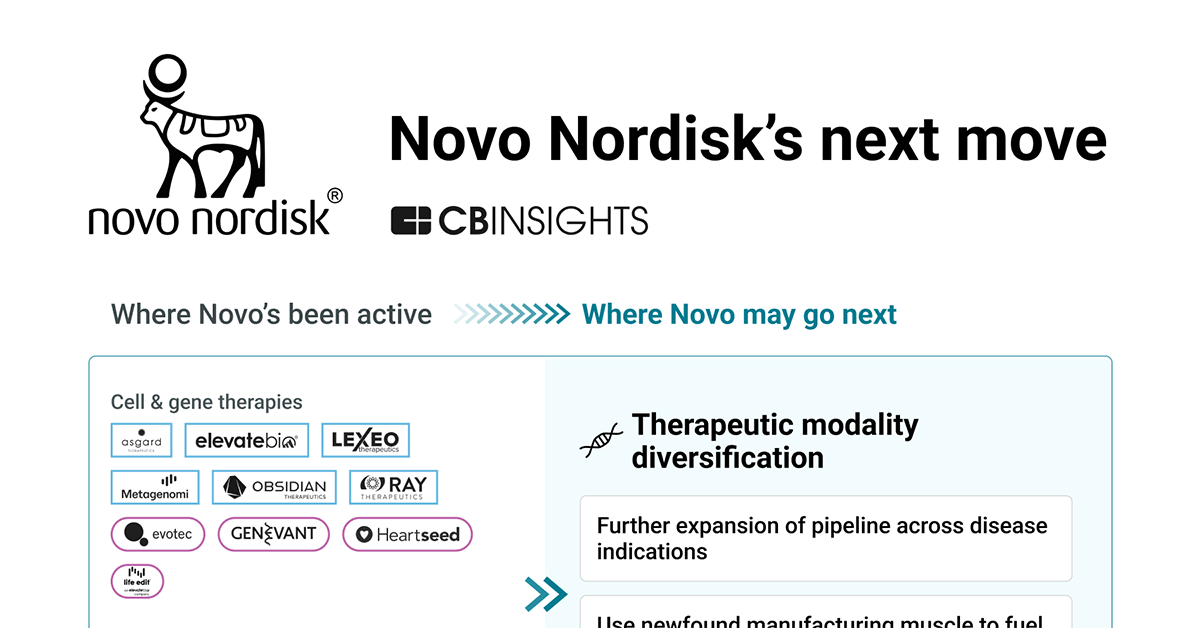The Next-Generation Sequencing (NGS) Data Analysis Market is projected to grow from USD 791.07 million in 2023 to USD 4,211.15 million by 2032, at a CAGR of 19.93%. The market is driven by the need for personalized healthcare, decreasing sequencing costs, and the expansion of genomic research programs. The US market is expected to reach USD 1,509.44 million by 2032, with a CAGR of 19.63%, driven by strong healthcare infrastructure and government support. The services segment dominated the market in 2023, with short-read sequencing holding 70% of the market share. The academic research segment held 52% of the market share, with government subsidies and financial initiatives supporting NGS research. North America dominated the market in 2023, with Asia-Pacific expected to grow at the fastest CAGR over the forecast period.
Read full article
April 26, 2025 • By Americans for Limited Government (Sponsored), Americans for Limited Government (Sponsored)
The article discusses how Joe Biden's policies, particularly the Inflation Reduction Act and importing Europe's drug price controls, have failed to lower drug prices and cure cancer. It argues that these policies would kill innovation in the US pharmaceutical industry, allowing China to become the leader in pharmaceutical innovation. The article praises President Trump's efforts to keep America the world leader in drug development, citing his executive order to fix the "pill penalty" and his plan to renegotiate international trade agreements to require European governments to pay fair market prices for American drugs. It concludes that adopting Biden's strategy would be a failure and allow China to replace the US as the world leader in innovative medicines.

April 26, 2025 • By Torie Bosch
The article discusses the importance of patents in the biotech industry, with Hans Sauer, deputy general counsel at the Biotechnology Industry Organization, arguing that patents are essential for innovation and investment in the field. Sauer criticizes the idea of scrapping the patent system, citing the consequences of weakening patent protection, such as the 2022 Inflation Reduction Act, which shortened revenue timelines for innovative drugs. The article also touches on the role of philanthropy in supporting research and the alignment of public health goals with commercial incentives. Additionally, it mentions the need for constructive solutions to problems in the pet food industry and the importance of transparency in drug pricing. Overall, the article emphasizes the significance of patents in driving biomedical progress and the need for a balanced approach to innovation and access.

April 26, 2025 • By MarketBeat News
JPMorgan Chase reduced its stake in VanEck Biotech ETF (NASDAQ:BBH) by 15% in the 4th quarter, selling 1,811 shares and leaving it with 10,261 shares worth $1,611,000. Other hedge funds, such as Jane Street Group LLC and Wilmington Savings Fund Society FSB, also modified their holdings in BBH. Institutional investors and hedge funds own 32.05% of the stock. BBH has a market capitalization of $341.21 million and a 52-week low of $135.34.

April 26, 2025 • By MarketBeat News
Bloom Energy (NYSE:BE) is compared to its peers in the "Electrical industrial apparatus" industry. The company has a beta of 3.27, indicating its stock price is 227% more volatile than the S&P 500. Despite having higher revenue, Bloom Energy has lower earnings than its peers. However, it is trading at a lower price-to-earnings ratio, making it more affordable. Analysts have a consensus price target of $22.97, indicating a potential upside of 21.23%, higher than the industry average of 18.86%. Bloom Energy beats its peers on 8 of 13 factors compared, making it a more favorable choice. The company designs and manufactures solid-oxide fuel cell systems for on-site power generation, selling its products to various industries.

April 26, 2025 • By MarketBeat News
Here's a concise summary of the article: The top 5 biotech stocks to watch are Thermo Fisher Scientific, AbbVie, Danaher, Vertex Pharmaceuticals, and GSK. These companies have had the highest dollar trading volume in the last few days. - Thermo Fisher Scientific (TMO) traded down $10.51 to $421.13, with a market cap of $158.97 billion. - AbbVie (ABBV) traded up $3.43 to $180.48, with a market cap of $319.27 billion. - Danaher (DHR) traded down $1.11 to $195.20, with a market cap of $139.51 billion. - Vertex Pharmaceuticals (VRTX) traded down $1.28 to $491.14, with a market cap of $126.12 billion. - GSK (GSK) traded up $0.32 to $37.35, with a market cap of $77.07 billion. These biotech stocks offer substantial growth potential but also carry higher volatility and risk due to their reliance on clinical trials and regulatory approvals.

April 26, 2025 • By MarketBeat News
Krystal Biotech (KRYS) and Tourmaline Bio (TRML) are two medical companies being compared based on factors such as profitability, dividends, analyst recommendations, earnings, risk, valuation, and institutional ownership. The comparison shows that 86.3% of Krystal Biotech shares are held by institutional investors, while 91.9% of Tourmaline Bio shares are held by institutional investors. Analysts believe Tourmaline Bio has a higher potential upside, with a consensus price target of $49.33, suggesting a 192.09% potential upside. Krystal Biotech has a beta of 0.75, indicating its share price is 25% less volatile than the S&P 500, while Tourmaline Bio has a beta of 2.14, indicating its share price is 114% more volatile. Krystal Biotech beats Tourmaline Bio on 9 of the 13 factors compared. Krystal Biotech is a commercial-stage biotechnology company that discovers, develops, and commercializes genetic medicines for patients with rare diseases, while Tourmaline Bio is a clinical biotechnology company that develops medicines for patients with life-altering immune and inflammatory diseases.

April 26, 2025 • By Jon Stojan
Dr. Anmol Kapoor, a cardiologist and medical innovator, is working on a new initiative to give patients ownership of their DNA data through a blockchain-based platform. The platform, which uses DNA NFTs, allows users to store and manage their genetic data, deciding who can access it and potentially earning from it. This move is seen as a way to protect patients from surveillance capitalism and give them control over their health data. Pilot programs are already launching in several countries, with the long-term goal of offering this to millions of users. Dr. Kapoor's work aims to empower patients with predictive health tools while protecting their genetic data.

April 25, 2025 • By James Mickleboro
The Motley Fool has identified three ASX shares that have been oversold and may be due for a rebound. These shares are: 1. CSL: Despite generating billions in revenue and maintaining its global leadership in blood plasma therapies, vaccines, and kidney disease treatments, CSL's shares have been priced as if its growth has permanently stalled. Goldman Sachs has a buy rating and $307.30 price target on the shares. 2. Pro Medicus: After hitting a high-flying valuation earlier this year, Pro Medicus' shares have pulled back more than 30% despite no meaningful deterioration in the business. Bell Potter has a buy rating and $280.00 price target on the shares. 3. WiseTech: WiseTech has taken a hit this year due to tech sector weakness, governance noise, and delayed product timelines. However, the company's CargoWise platform is entrenched with global logistics players, boasting long-term contracts and 95% recurring revenue. Goldman Sachs has a buy rating and $84.45 price target on the shares. These shares may be bargain buys according to analysts, and investors should consider snapping them up while they can.

April 25, 2025 • By Hannah Jocelyn
A new memoir, "Second Life: Having a Child in the Digital Age" by Amanda Hess, explores the challenges of childbearing in today's technological and political climate. The book delves into the author's personal experience with a pregnancy complication and the scrutiny she faced. Jessica Winter's review of the book discusses how reproduction has become a highly controlled and judged aspect of life, with politicians and biotech startups seeking to optimize offspring. The desire for control is a common thread among various groups, including Silicon Valley baby-coders and anti-choice politicians. However, Winter argues that parenting is not a programming language, and a child is not an engineering problem to be solved.

April 25, 2025 • By Lisa Fickenscher
Biotech mogul Sam Waksal is facing a lawsuit for allegedly testing an illegal "swine drug" treatment on a child with epilepsy. Waksal, who served prison time for insider trading, imported the veterinary drug from Colombia and monitored the child's response to develop a similar product for his company, Equilibre Biopharmaceuticals. The alleged dosing took place over several months and was exposed by a whistleblower in 2022. The lawsuit also accuses Waksal of sexual harassment and creating a hostile work environment. Waksal declined to comment but provided text exchanges that he claimed were between himself and the child's mother, who allegedly understood the risks. The lawsuit seeks at least $150 million and names Waksal, Equilibre directors, and another biotech firm he owns, Graviton, as defendants. Graviton has denied the allegations, calling them "without merit."

April 25, 2025 • By Karenr
A new project, the "Vaccine Integrity Project," has been launched to "safeguard vaccine policy, information, and utilization" in the US. The project is led by former FDA Commissioner Margaret Hamburg and Dr. Harvey Fineberg, and is funded by iAlumbra, a nonprofit founded by Walmart heiress Christy Walton. The project aims to use "the best available evidence" to inform vaccine policy, but some critics argue that it may be influenced by pharmaceutical industry interests and could potentially replace the Centers for Disease Control and Prevention's (CDC) Advisory Committee on Immunization Practices (ACIP). The project's leaders deny that it is intended to be a shadow or parallel version of the ACIP, but some critics are concerned about the potential for private influence on public health policy.

April 25, 2025 • By Idurso
George Yancopoulos, co-founder of Regeneron, has purchased 6 units in a Tribeca building at 50 Hudson Street for $32.2 million. The units cover 15,003 square feet and were sold by Eric Schlagman. Yancopoulos is expected to use the property for offices, but it's unclear if he plans to purchase the remaining unit. The building's current tenants include a jewelry store, fitness program, and architecture firm.
April 25, 2025 • By Molecular Partners
Molecular Partners AG, a clinical-stage biotech company, has announced the presentation of three posters at the American Association for Cancer Research (AACR) Annual Meeting 2025. The posters highlight the company's progress in developing DARPin therapeutics, including a Radio-DARPin program targeting DLL3 for small cell lung cancer and a program targeting mesothelin (MSLN) in solid tumors, both co-developed with Orano Med. Additionally, the company presented preclinical proof-of-concept data on its logic-gated CD3 Switch-DARPin T cell engager, which shows promise in selectively targeting tumor cells while minimizing side effects. The company expects to file an Investigational New Drug (IND) application and initiate clinical trials for its MP0712 program in 2025.
April 25, 2025 • By Spanios
Spanios, a leader in human-derived organoid model systems, has partnered with White Lion Capital LLC to provide biotech and pharma companies with access to its patient-derived tumoroid models and innovative funding for clinical development. The partnership allows companies using Spanios' COMPASS platform to receive direct investment from White Lion Capital LLC for critical IND-enabling studies and early-stage clinical trials. This collaboration aims to accelerate the development of new therapies for rare and difficult-to-treat cancers by providing reliable data and accessible funding. The FDA's push for New Approach Methodologies has created an opportunity for oncology companies to adopt innovative drug development approaches, and Spanios and White Lion Capital LLC are encouraging companies to capitalize on this trend.

April 25, 2025 • By Matteo Wong
The article discusses the potential of generative AI in scientific discovery, particularly in the field of cancer research. While AI executives like Demis Hassabis and Dario Amodei have made bold claims about AI's ability to "cure all disease" or "eliminate most cancer," the reality is more nuanced. The article suggests that AI can be a useful tool in scientific research, but its applications are unlikely to be as wide-ranging as its creators claim. There are two types of generative AI that are currently contributing to scientific discovery: chatbots that synthesize existing data and ideas, and models that "speak the language of biology" by analyzing experimental data. The former can be useful for information processing and summarization, but are limited in their ability to generate new ideas. The latter, such as AlphaFold, can quickly apply patterns drawn from large amounts of data to identify potential new drugs or targets for therapy. However, the article notes that even if AI were to propose a new drug or treatment, it would still require years of laboratory and human trials to prove its safety and efficacy. Additionally, the scarcity of high-quality training data and the need for human collaborators to design and experimentally verify AI systems are significant limitations to the use of generative AI in scientific research. Despite these limitations, the article suggests that AI can still be a powerful tool in scientific research, particularly in increasing efficiency and reducing the time and cost of drug development. By working together with human scientists, AI can help to identify promising new targets for therapy, design new drugs, and simulate complex biological processes. Ultimately, the article concludes that the way to build AI for science is to do some science, and that humans designing science-boosting AI models need to understand the problem, ask appropriate questions, and curate relevant data.

April 25, 2025 • By Logan Hitchcock
Biopharmaceutical company Coeptis Therapeutics is merging with Dogecoin mining company Z Squared Inc. to become the largest publicly traded Dogecoin miner. However, Coeptis shares have plummeted nearly 40% to $7.53 as investors react negatively to the news. The merger, subject to regulatory and shareholder approval, will make Z Squared a subsidiary of Coeptis, with Z Squared's CEO remaining in charge. Coeptis will maintain its biopharmaceutical operations through a spinout, while focusing on mining Dogecoin and potentially other crypto assets. Despite the plunge, Coeptis shares are still up 37% year-to-date, but down over 96% from their all-time high.

April 25, 2025 • By Ellen Knapp
We mined Novo Nordisks acquisitions, investments, and partnerships to discern its strategic priorities and future plans. Novo Nordisk has become big pharmas newest powerhouse thanks to the meteoric …

April 25, 2025 • By statetimes_editor
Kiran Mazumdar-Shaw highlights India's potential as a global 'Creative Powerhouse' despite global trade tariffs and stock market volatility. The country's Media & Entertainment (M&E) sector aims to 'Connect Creators' worldwide through the 'Create in India, Create for the World' vision. India is home to a growing population of young creators, with notable successes like Namit Malhotra's DNEG, which demonstrated groundbreaking VFX in the Oscar-winning film Dune 2. The WAVES Xcelerator (WAVEX) initiative, part of the World Audio-Visual Entertainment Summit (WAVES) 2025, aims to connect young creators with industry leaders and foster startup growth. Scheduled for May 2025 in Mumbai, WAVES seeks to enhance India's M&E startup ecosystem by providing mentorship, funding, and global opportunities. The sector is projected to grow from ₹2,422 billion in 2023 to ₹3,067 billion by 2027, encompassing innovative fields like gaming, AI, and the metaverse. WAVES offers a platform for startups to showcase their work to global investors, fostering inclusivity within the M&E ecosystem. The initiative includes women-led startups and aims to create a dynamic and competitive startup environment. As a supporter of the arts, Kiran Mazumdar-Shaw believes that a nation's culture is rooted in both its arts and sciences, and India is uniquely positioned to emerge as a global creative powerhouse. WAVES exemplifies the convergence of technology and storytelling, poised to tap into innovative areas like animation, AI, AR/VR, gaming, and the metaverse.